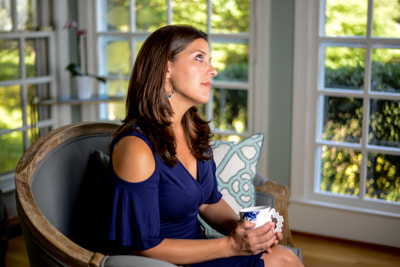A practice that I use is to pause so that I can give my instinct a chance to be heard. Then, I check in with myself by asking, “Does it feel good?” This question gives me a chance to feel and hear how it feels. My friends and business associates remind me to pause and listen when they ask me, “What is the (your) Kerry gut saying?” For example, I follow this practice on all our new hires. If my gut reaction is no, we will not move forward with the candidate.
Recently, my inner voice kept prompting me to send a card to a friend whose husband had passed, and I kept ignoring it as I was busy until finally, I wrote the letter. My friend called crying and said, “your letter arrived on my husband’s birthday, your words of his gentle kindness gave me comfort on such a heart-wrenching day, I read your letter almost every day.” I smiled as I was thankful; I listened to my intuition to send the day I did so that it arrived on his birthday.
Years ago, I did not realize there was scientific evidence to support the validity of my “gut reaction” (the HeartMath Institute calls your “heart reaction”), but it turns out that approaching life from your heart is better for you both physically and socially. This information has inspired me to encourage those around me to also follow their instincts as we are conditioned to ignore our intuition and yet it is critical to our well-being and success.
How do you use your intuition to your best advantage? Notice your body’s reactions - changes in heartbeat, breathing, and muscle tension. Personally, my stomach will hurt if I am not following my intuition. Balancing logic and intuition are a practice of sorting your assumptions, evidence, prejudices, and intuition you are feeling. As Malcolm Gladwell, author of Blink: The Power of Thinking Without Thinking said, “Truly successful decision making relies on a balance between deliberate and instinctive thinking.”
And yes, this is also an effective strategy to change the world and save lives. Below are some examples of fascinating stories on trusting intuition.
- Trisha Coburn: After having recurring scary dreams of people trying to tell her something. Trisha said, “I was standing at a barbed-wire fence across from five or six terribly frail people with huge dark eyes and ghostly pale skin. They were trying to tell me something in a language I didn't understand. It was intense and disturbing, and it left me rattled.” She felt something was physically wrong so went to the doctor and all came back normal. When Trisha’s dreams continued with even more desperation from the people, she decided to get a colonoscopy and found out she had cancer. The doctor said if they had waited, her outcome could have been much worse.
- Henry Ford: Dealing with high turnover, he doubled employee wages in 1914, which in turn reduced turnover by a factor of more than 20 while productivity doubled and demand for Ford cars boomed.
- Bill Allen: Boeing’s CEO in the 1950s had an idea to build his own commercial jet for civilian air travel. Allen convinced the board to risk $16 million on the transcontinental airliner, the 707, which transformed Boeing and air travel.
It takes practice to tune into your intuition. Staying in the pause is powerful. It allows you to notice your physical feelings, dreams, and recurring thoughts. With practice, you can connect your heart, gut, and brain to form one unified connection. When you allow the flow of internal feelings and dialog to influence your life, you will experience more positive outcomes. Life will flow with less resistance, and while you might not change the world, you will change your world.
Pausing is part of the 3 P formula; pause to pivot to the positive. If you would like to learn more about bringing this technique to your team contact me at[email protected]


 RSS Feed
RSS Feed